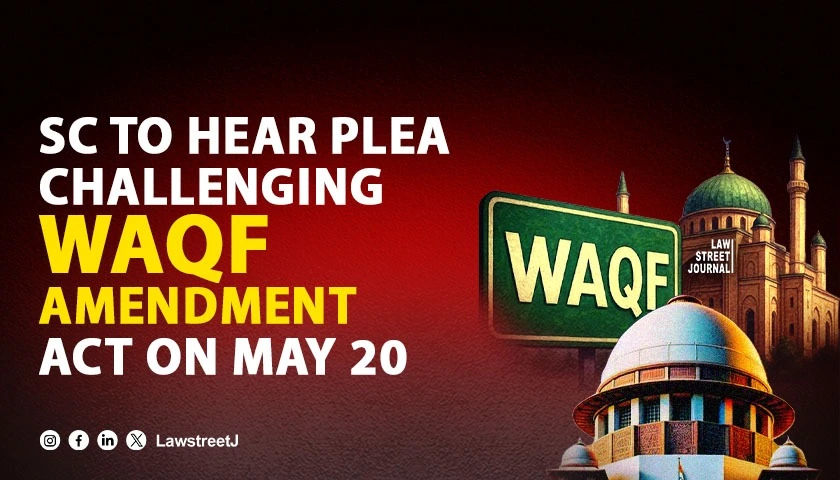NEW DELHI: The Supreme Court on Thursday decided to consider on May 20 whether an interim order is required or not on issues of waqf by user, nomination of non-Muslims to Waqf Council and Boards, and identification of government land under waqf, on a batch of petitions challenging the constitutional validity of Waqf (Amendment) Act, 2025.
A bench of Chief Justice of India B R Gavai and Justice Augustine George Masih, however, clarified that it would not consider any petition challenging the validity of Waqf Act, 1995, by Hindu parties while considering the need for passing any interim order.
The court also extended its previous order till May 20 on the assurance given by the Solicitor General Tushar Mehta that no waqf properties, including those established by user, would be denotified. He had also assured that no appointments to the Central Waqf Council or State Waqf Boards would be made under the 2025 Act, till the next date of hearing.
Mehta said that the government has filed a detailed response and affidavit on the three issues identified by the apex court in the Waqf case.
Earlier, the matter was heard by a three judge bench of then CJI Sanjiv Khanna, and Justices Sanjay Kumar and KV Viswanathan.
The Union government has earlier told the Supreme Court there are several examples which would show how the ‘waqf by user’ and the power “declaring any land as waqf suo motu by waqf board” has proved to be a safe haven of encroachment of government properties and private properties.
Stoutly defending the Waqf (Amendment) Act, 2025, the Minority Affairs Ministry also maintained change in the composition of the Central Waqf Council and the State Waqf Boards does not violate Article 26 of the Constitution, as minimum 18 out of 22 in Central Waqf Council and minimum 8 out of 11 in Waqf Boards would remain Muslims members.
On May 5, the Supreme Court had said the figures with regard the waqf properties projected by the government at 3921236.459 acres of land in the country, which has been dispute by the other side, would be considered by the apex court.
In an response, All India Muslim Personal Law Board, an NGO which challenged the law, termed the government's figures as misleading and without any basis.
The Supreme Court had on April 17 made the Union government to give an assurance that no appointment to the Central Waqf Council and State Waqf board would be made and the waqf properties declared or registered as waqf by users would not be denotified till the next date of hearing.















